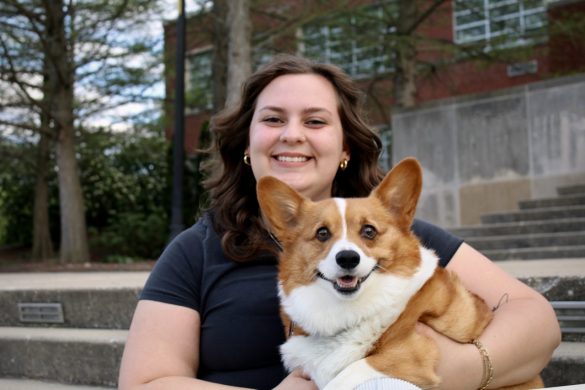It is no secret that artificial intelligence’s role has increased in our lives substantially in the past year. With platforms such as ChatGPT becoming more prevalent, lines between the work we as humans can do and what machines and computer programs can do for us are becoming increasingly blurred. AI’s use in education lacks methodization despite its mass prevalence. In my opinion, it is unreasonable for students and teachers to use AI for assignments and exams due to the many ethical and professional issues that arise.
According to a Best Colleges survey, 22% of college students have used AI to work on assignments or exams. While this number is low compared to the amount of students who have used AI in total—43%—it is still too many. While there will always be classes and assignments that seem in excess or pointless, students are doing themselves a disservice by using AI to complete these assignments. Using AI as a crutch will only hinder their ability to succeed throughout the rest of their college education, as well as stunt their abilities when they move into their career field—especially when it comes to classes in their major. The survey by Best Colleges found that only one-third of students have explicitly heard rules about the use of AI at their institutions, and that 60% have not received any instruction or guidance on how to use AI ethically and responsibly. While I think most college students would be able to make the decision for themselves on whether it is responsible to use AI, this survey brings up a good point in that there is a level of responsibility from universities and professors to discuss ways in which AI can and cannot be used in their institutions or classes.
In my experience, I have seen multiple professors include statements and clear policies in their syllabuses this year, all of which strictly prohibit all uses of AI for classwork. The AI clauses vary from syllabus to syllabus, with some blatantly prohibiting it in every aspect and others allowing it as long as credit is given. With AI becoming more prominent, I think it is important for professors to make their expectations regarding AI very clear. I would hope this eliminates some of the desire from students to use AI for assignments or exams, but even if it does not, if there are narrowly-defined rules outlined in syllabuses, consequences can be more uniform and consistent. According to The Buffalo News, the use of AI would, in most cases, have similar repercussions to cheating at the University of Buffalo, at least. This seems reasonable to me, as it is unethical for students to use something other than themselves to complete their work, and not doing so does entail a level of academic dishonesty.
Despite this, according to the University of San Diego, there are potential benefits to the use of AI in education. A lot of the benefits it lists center around AI’s ability to personalize learning for each student. The University of San Diego says AI could be used for personal, focused tutoring, advanced grading and meaningful feedback on assignments. While I agree that it may sometimes be difficult for professors to give individualized feedback to every single student on every assignment they turn in, it feels like they would be unethical and unprofessional by relying on AI to do this for their students. If professors were to use AI to grade every assignment and exam they give, I feel that they would not be doing their job to the fullest extent—or at least the extent that is expected of them by their institution, students, parents, etc. I also feel that if professors were to only use AI intermittently, it would also be unfair because the intentions from the professor and the AI could not be the same every time.
Another issue with relying too heavily on AI in classrooms is bias, according to eLearning Industry, which says AI’s responses may be biased if the dataset it relies on is biased, leading to the potential reinforcement of biases or stereotypes. This brings up an important point—Although the use of AI for assignments and exams is, in my opinion, unethical, it reduces the opportunity for real connections to form between teachers and students. When a professor or teacher does not individually grade a student’s assignments or exams, they may lose the chance to understand that student and how they think. Similarly, when students use AI to complete professional assignments that require strict science or non-bias, AI may not know the slight difference between words which could cause leaning one way or another. AI, according to eLearning Industry, should be used in conjunction with traditional teaching methods in order to eliminate the possibility that bias would go unaddressed.
Overall, I do not think AI has a sound place in education—at least right now. Professors and teachers lose the connection they should have with their students if they rely too heavily on AI, and students are limiting their learning abilities if they use AI to complete coursework instead of doing the work themselves. As AI continues to become more and more prevalent in society, it is important to understand the good that it does, as well as the ways in which it can hold us back.








